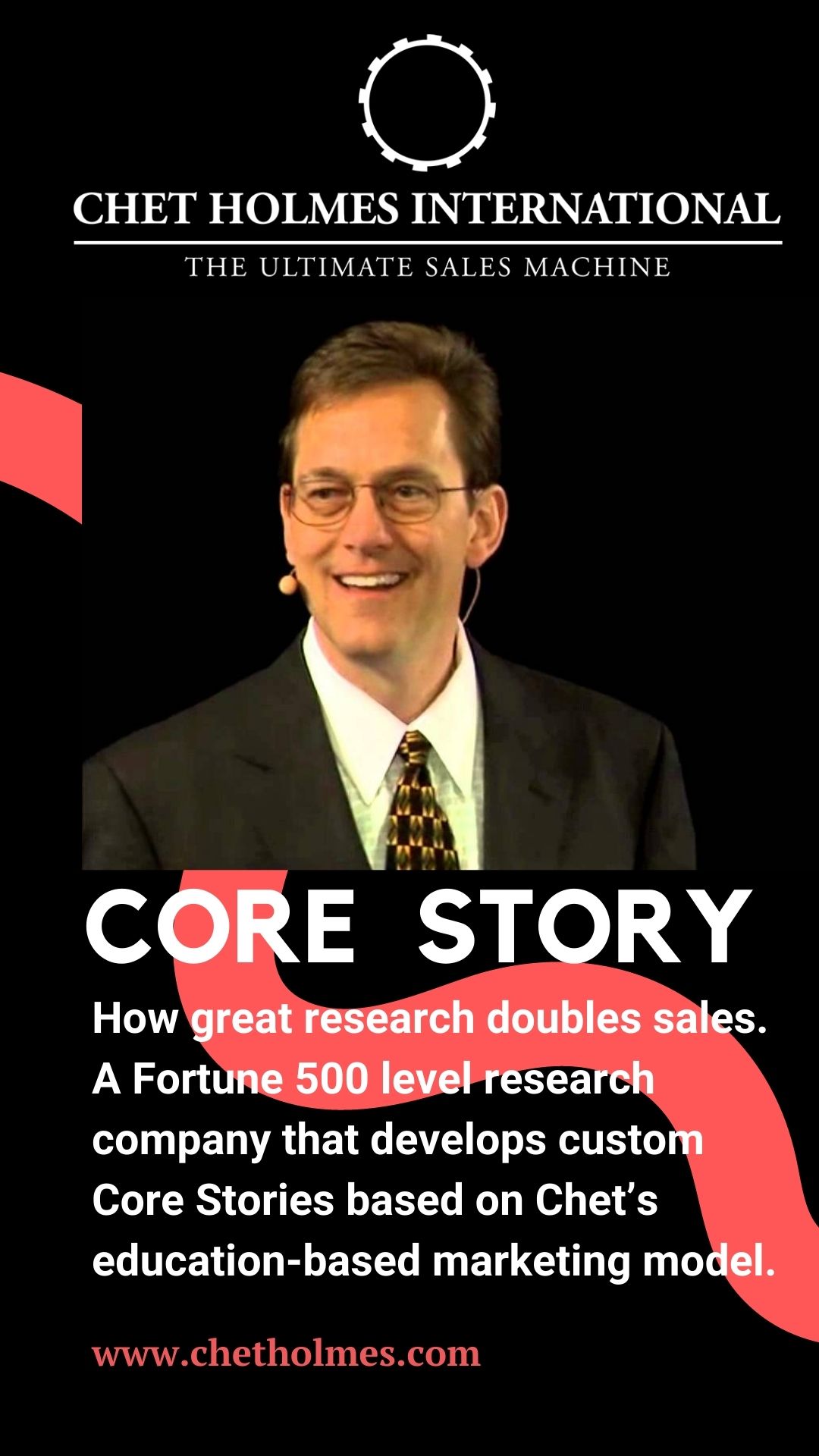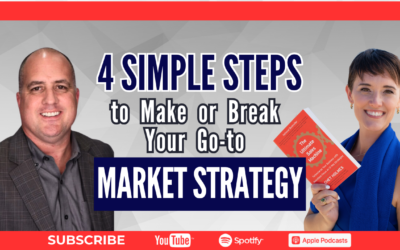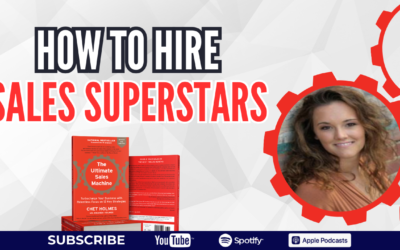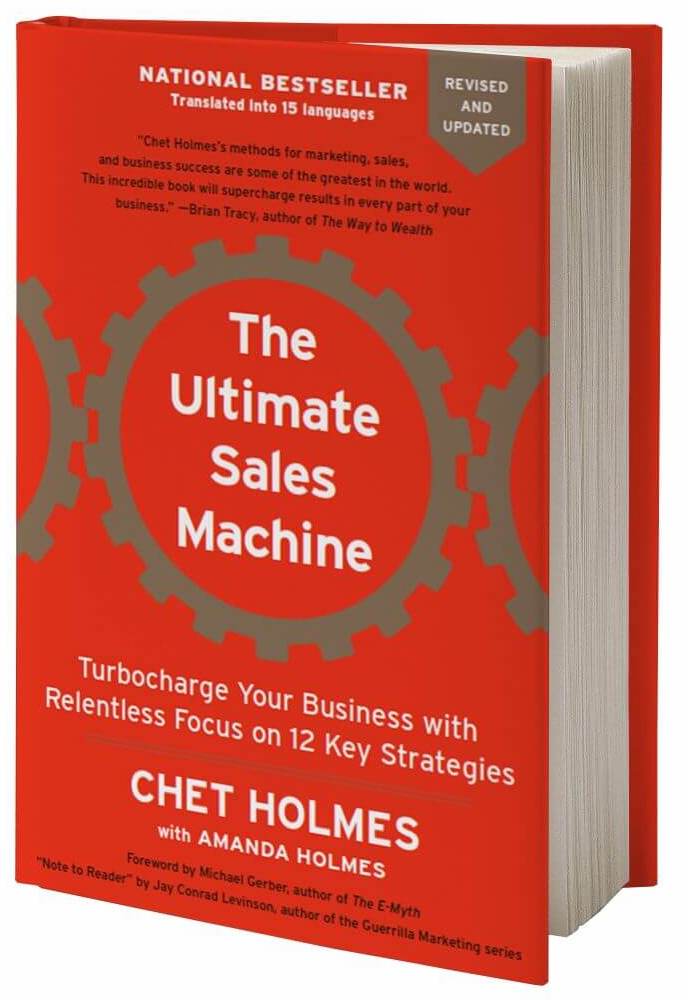Salespeople who use social to sell outperform their peers by 78%.
However, majority of salespeople and business owners are baffled by what to post.
This week’s episode, we talk about what truly grabs people’s attention on social media..
(Which is more than likely, the opposite of what you’re doing right now).
Hear it from two powerhouses:
Alan Belkin -is a CxO with over 13 years of global experience generating $1bn in enterprise value. He is an expert in demand generation for B2B, B2C brands and products, conversion optimization, and data analytics.
Molly Mahoney -known as the Prepared Performer is a digital growth strategist who specializes in making authentic video content and leveraging organic social and chat automation marketing to skyrocket client sales. She’s celebrated videos that have gone viral and regularly speaks at the industries largest events including Traffic and Conversion, Social Media Marketing World, and more.
- Want to know what’s keeping you from doubling your sales in the next 12 months? Take our quick QUIZ to get answers: Howtodoublesales.com
- If you’d like to have a profound breakthrough in your business, schedule your breakthrough call with a LIVE expert here: Chetholmes.com/Breakthrough
- Claim your FREE chapter 4 from the top 10 most recommended marketing and sales books of all time! Visit: Ultimatesalesmachine.com to find out how you Create 9X More Impact from every move you’re already making to win clients!
Alan Belkin: The market is changing and the reality is if you are unable to speak powerfully and authentically and transparently, and truthfully about your personal life in relation to your brand, you are not going to be able to get cutthroat. That is a reality.
Molly Mahoney: I got goosebumps. It’s so real. It’s true.
Alan Belkin: And here’s the most difficult thing when you go and you market any particular product, people are not interested in the thing that you’re selling. They’re interested in the story of who you are because here’s the reality right now. I’m sure you’ll tell this. You relate to the people that you buy from. That is a reason why you buy and you also do not relate to those brands which come across as inauthentic and disconnected.
And that’s the state of the union right now, marketing game, right?
Molly Mahoney: It is. We’ll say that I think some people are actually afraid to really go into what that takes in order to bring that human self out. And they try to maybe polish it a little bit by saying we’re being human by saying we’re being authentic and I’m going to do a messy camera video or whatever, you know, to try and make it seem more real rather than actually being real.
Amanda Holmes: Wow. Can you give me an example of that?
Molly Mahoney: Yeah, I think it’s scary for a lot of people to do something that is just even just having a normal conversation. And I remember when I was in college as a theater performer learning when the camera was first invented that there’s, I don’t remember what it’s called, but there’s some sort of physical chemical thing that happens to us when we know there’s a camera on, and it’s hard for us to let that go in order to show the real us. Right.
So if we’re doing something, as soon as you put the selfie up or whatever, you know what happens, everybody puts their selfie faces on.
Amanda Holmes: It’s not a kissy face?
Molly Mahoney: I think it’s different for everybody. What’s your selfie face? This is actually a perfect thing. So my selfie face is always, and I have to kind of tame it down a little bit. It’s always -. And there’s a reason behind that because when I was in my twenties, I had a boyfriend tell me that my smile looked like the chicken in Chicken Run.
Alan Belkin: Wow, the chicken in Chicken Run.
Molly Mahoney: But like Wallace and Gromit, I don’t know if you remember, like I love Wallace and Gromit, but when he’s like cheese, right?
So I’ve had dentures since I was 12, so I’ve had fake teeth my entire life, literally. And so I have a lot of self-conscious stuff around my smile, which has caused me to develop what is actually like a non-authentic smile because of all this stuff that’s around it. And we all have that, that stuff.
And we’re afraid to share it because of judgment or other things. So the more that we can let little moments like that out, like little authenticity indicators out, other people have stories of moments like that, where they can connect to it.
And then what’s really cool is if when you can figure out where those moments resonate well with your community, they can become these touchpoints that you come back to that act almost like, uh, like earworms, right? They stick in and they become that stickiness that keeps your community together where people think of you when they go to the dentist. Simple as that.
Amanda Holmes: I have a piece of market data to clarify this.
So I do a lot with businesses that don’t believe that you should use social to sell. They’re like in a little bit more of an older generation, not traffic and conversion style, where they really proved to me why you should do that. So statistically, if a company shares something on their social media page and then a person within that organization shares it, they’re 24 times more likely to get that information shared and they’re seven times more likely to convert that into a sale. Isn’t that great?
Molly Mahoney: And there’s so many styles proved that actually. And I think to look at because it can seem kind of fluffy, like, oh yeah, let’s be human.
Amanda Holmes: Yeah. That’s what I want that data. This is why you have to be authentic. And then people start to get to know you.
And if you just build rapport with somebody and find their need, you’re 65% of the way to a sale. And you could be doing that by being yourself, being transparent. Right? So I would just wanted to put some context to this and I’m like, yes, I know some market data to back that up.
Alan Belkin: Here’s the bigger problem.
The bigger problem really is that most people are terrified about their darkness.
So most people are terrified that their darkness is going to repel their customers. The reality is that your darkness is the thing that binds you with people in a very deep and profound way, because the light side of you, who you pretend to be is largely irrelevant in the marketplace because that’s everybody’s lie and pretense.
Molly Mahoney: Yes. And the darkness. It’s the fact that these, the light and the dark exist together. And so my friend, Stacy Harmon, who’s amazing. And she has this work that she does with people that takes you to that place of the darkness that allows you to get to the place of the lightness, because there’s always this yin and yang, right?
They always exist together. And there’s a danger, I think, in going into the darkness. And staying there and getting to a place where it becomes self-indulgent, which I think is a different, a different thing. But if you’re willing to really show yourself and recognize that in your community as well, it’s not simply about you sitting in your targets, right?
But recognizing that we’re all humans in that together. There’s a stickiness to it that not only can increase sales in the beginning, but also keep people committed to your companies.
Alan Belkin: Well, here’s the thing from a marketing standpoint, people relate to problems and pain. That is what captures attention at the very beginning of every single marketing experience.
If you sell just the dream and the hopes, you miss 80% of the opportunity to connect with people and meet them where they are at inside of the darkness in their own lives, which is the place where they are most receptive to making with their eyeballs a pause to then click something to get into your world and orbit.
Molly Mahoney: And the point of your product is to solve that problem.
Alan Belkin: So you cannot, you cannot live in a world where you are living solely in the light, thinking that your plasticity, your plastic fantastic, beautiful life, the lie is going to make a difference in the marketplace. It will bend or your brand will literally sizzle because you will look like everybody else who is an effing liar, literally, on social media right now, which is the majority of what’s happening.
Molly Mahoney: So what do we do?
Alan Belkin: We tell the truth.
Molly Mahoney: And that’s the thing that is for most people, the scariest, hardest thing.
Alan Belkin: Yeah, it is. And it’s also the thing that will liberate you as a creator in the marketplace and liberate you as a creator in the nation, liberate you as an individual. So you can tie in your spiritual mission with your business mission by being able to speak powerfully what the truth is of your own life experiences.
Amanda Holmes: I want to speak to this because I feel that there is a part that’s important about speaking your truth and being authentic to you as a person. But then I think that there’s also some people. So there’s some people in my feed that only share what’s going on and it is like really dramatic.
And a lot of like, this is everything that’s going on with my life. Instead of going internally, they’re trying to gain attention negatively by saying here’s all the drama in my life. Do you know what I mean? When they’re like posting every thought. So I think that there’s still a balance of, um, a friend of mine says it.
I really love it. Law of ambition, he grows, used to grow a million followers on each of his pages and then sell them. He is so good at it. It was crazy. He would share that his post became a reflection of what he learned that day. No matter if it was good or bad or ugly. It was truthful. And I thought that that was a good, positive way of saying, okay, I’m going to be truthful.
And I’m going to use this as an outlet for me to reflect upon myself and the honest, so I can look back and see that, right? Like there’s a balance that yeah.
Molly Mahoney: How could it become something that we actually use as a way to help ourselves to be more impactful, better and better as a term, whatever. Right.
But how can we see our problems as possibilities? And I feel the more like myself, the more honest that I’ve been, it’s actually – it’s cathartic in a way that I can live in it, but it’s, it’s challenged me to become more of the person that I actually want to be as opposed to the person that I can pretend to be.
It’s really been a very – seeing these problems as possibilities has been a very empowering thing where I’m actually guiding myself through this process of creating content to be more of the representation of who I actually want to show up as without being fake about it. Really living that way. being
Amanda Holmes: Right. Being authentic about, “Oh, I’m terrified of this”, or “I’m really angry about this.”
Right? It’s sharing those emotions. Is that a good way to start?
Alan Belkin: Listen. When it comes to creating content, you have a life. You’re a human being. You’d wake up in the morning. Sometimes you’re happy. Sometimes you’re sad. Sometimes you’re miserable. Sometimes you’re related. Sometimes you’re excited. Sometimes you’re not. So is your customer.
So when your marketing reflects closer to the realities of life, closer to the realities of what it is to be a human being, you happen to create more compelling, more powerful, more persuasive, more influential, more lasting, more evergreen, more authentic, and more spiritually aligned content that energetically will connect with the right prospect at the right time at the right place.
So at the minute that you can share your life publicly, the good and the bad, you then begin to attract the right kind of customer that you need for your life at that stage in that business.
Molly Mahoney: I agree with that. And I think there are some people who may feel like, okay, but I’m going through this thing that I’m not yet ready to share.
Alan Belkin: So then you need to digest, you need to process it and you need to come out the other side of that, having them reflect on your own internal darkness, the mission that you took to resolve it and where you come out, the other side, depending on where the mission where you’re at in your life. Right.
But listen, here’s the deal. I think a business is a reflection of you. Your business is a mirror of you, right? So why would you want to build a business that reflects only half of you?
Molly Mahoney: Yeah, I think a lot of people don’t actually know who you is.
So Stanislavski, an acting theorist has this giant chart. I don’t know if you’ve ever seen it, but it’s this huge chart. I think he made it in like 1932. It’s all these things of how to become a more powerful actor. And there’s all these little things in it.
And the very bottom of it has one huge line solid block that says work on oneself because if you want to be able to show that reflection like art is reflection of you know, reality. If we want to do that in our business, we have to actually take the time to figure out who we are before we’re able to share.
Amanda Holmes: I mean, I think it’s easy for you to say, can you share with everybody your own process in the morning from that also puts into perspective what you do internally to –
Alan Belkin: Yeah, I spend two hours a day writing.
I wake up in the morning at four 30 every day. And I will spend the first two hours in journaling. I will write out exactly what the darkest, whatever the darkest experiences that I’m having in my world. And I wake up into anxiety. I wake up in distress. I wake up into the reality of what it is to be in business.
From there, I take the storyline that I have that’s running my life in the morning. And then I recreate the storyline that comes out the other side every day. So I share that. Yeah. And that’s what then forms the content that then becomes the engine that comes out. So that’s the frame.
Molly Mahoney: So how do we help people who maybe are selling a microphone?
Alan Belkin: I mean, if you’re selling a microphone, you’re actually not selling the microphone anyway. You’re really selling the result that they’re producing and how that’s impacted you positively negatively, the storyline behind the microphone.
Molly Mahoney: So, well, the darkness that goes into this for most people to use the microphone in the first place.
There’s a lot, there’s a lot of stuff wrapped around that. Right. And the changes that we have to go through in the moment before we, before we would even think of why we would need a microphone. If we create, if we move this into what we’re creating for our content and for our clients, there’s these beliefs that they have to have in order to want that microphone that are going to start when they first wake up in the more.
Potentially in anxiety or in the heaviness, or maybe, you know, whatever it is when we first wake up with. And if you’re looking to attract the people that you really want to serve, it probably is going to be a reflection of some sort of where you’re coming from. Right. And how you can show up with that.
So if we take that whole journey from waking up into what we need for the microphone, there’s so much nuance in there. And then that can actually be tested and your marketing as well to see where your community gravitates to those pieces of it.
Amanda Holmes: I love it. If you had to give one takeaway for how to utilize content for selling.
Molly Mahoney: I mean, the biggest takeaway I think is really to do that work first on who you are as an actual human and allow yourself, maybe it’s a journaling process. Maybe it’s an exercise that you go through where you pull out who you are and get it out there, even if it’s not publicly, because I know not everybody is ready to do that.
I’m very public and sharing all of who I am. And I know not everyone’s ready to do that at first, but simply putting it out into something outside of yourself. So you can at least recognize it and then see how you can start to share that in little bits and pieces. We’re so lucky to have short form content, or we can share just little bits and pieces of it.
And start to recognize others, like take that and listen to what’s happening in the communities where your ideal client or customer community, where they’re spending time and finding those moments from them too, so that you can see that humanity in each other. That it’s not only about finding it within yourself, but it’s really about recognizing it and others, it’s a very Namaste type of thing, but it’s, I think it’s important and it’s what we need more than anything right now.
Alan Belkin: I think that if you’re going to be creating a company, the company needs to be aligned with who you are first and foremost, you are not in selling inanimate stuff. Right. You’re selling something which is meaningful for you. So, getting to know yourself and getting to understand who you are brand is more important and more meaningful.
Then whatever it is that you intend to sell, and if you’re going to be marketing, you might as well market in a way that has to polarize a vast majority of people out of your world, and only leave a tiny minority that are going to be reflecting what it is that you specifically want to serve.





 Get your pre-sale copy of the new edition of The Ultimate Sales Machine! (With special limited time bonuses)
Get your pre-sale copy of the new edition of The Ultimate Sales Machine! (With special limited time bonuses)
0 Comments